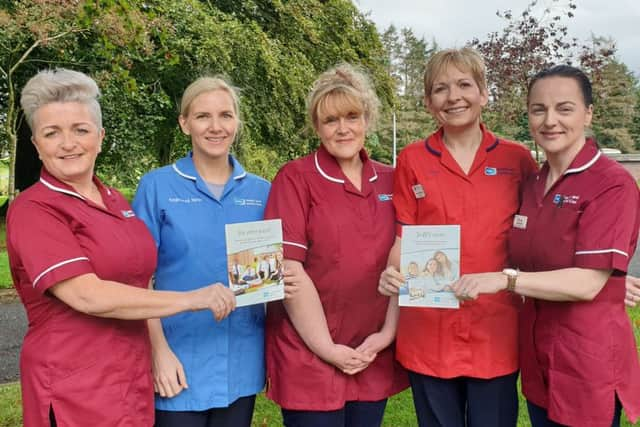HPV vaccine schools roll out extends to boys
and live on Freeview channel 276
The Western Trust are supporting the Public Health Agency HPV vaccine programme, which is offered to Year 9 pupils as part of the school-based vaccination programme.
The Trust said that boys are now eligible for the first time because the evidence “is clear that the HPV vaccine helps protect both boys and girls from HPV infection and associated cancers”.
Advertisement
Hide AdAdvertisement
Hide AdIrene McSorley, School Nursing Team Lead for the Trust said: “The Western Trust’s School Nursing Team are delighted that from this September the HPV vaccine will be offered to boys for the first time to help prevent the spread of HPV and stop certain types of cancers forming.


“By offering it to boys as well as girls it will protect more people and reduce the spread of the virus so that we can stop it from destroying lives. Cervical cancer is currently the most common cancer in women under 35. This vaccine is so important in preventing these unnecessary deaths as well as helping to protect both men and women from other cancers linked to the virus.”
The HPV campaign commenced across all post-primary schools in the Western Trust from yesterday, Monday September 16 and will be rolled out over the coming fortnight.
Irene added: “Your son or daughter will be given a consent form and information leaflets from the School Nursing Department via their school and I would urge parents or carers to discuss this important vaccine with their child, complete the consent form and return to the school nurse via the school. Further information can be obtained by contacting the School Nursing Department within your local area or by T: (028) 82835171.”
Advertisement
Hide AdAdvertisement
Hide AdDr Jillian Johnston, Consultant in Health Protection at the PHA, said: “The HPV vaccine will help protect your child against HPV infection and associated cancers, including over 70% of cervical cancers in women, and cancers of the mouth, throat, anus and genitals in men and women. It is given in the same way as other common vaccines through an injection in the upper arm. The body reacts by making antibodies that will help the immune system fight HPV infection. For the vaccine to work fully, two injections will be needed within a 12 month period. It is important that your son or daughter has both vaccinations to get maximum protection. The vaccine cannot cause HPV infection or cancer.
“HPV is very common and is easily spread through sexual activity. Although it is very unlikely that your son or daughter is at risk of HPV infection at this age, it is recommended that they have the vaccine now because studies show that protection from the vaccine is better when it is given at an earlier age.”
If parents have any questions about the vaccine, they can find more information on the PHA website www.publichealth.hscni.net or can contact their school nurse directly.